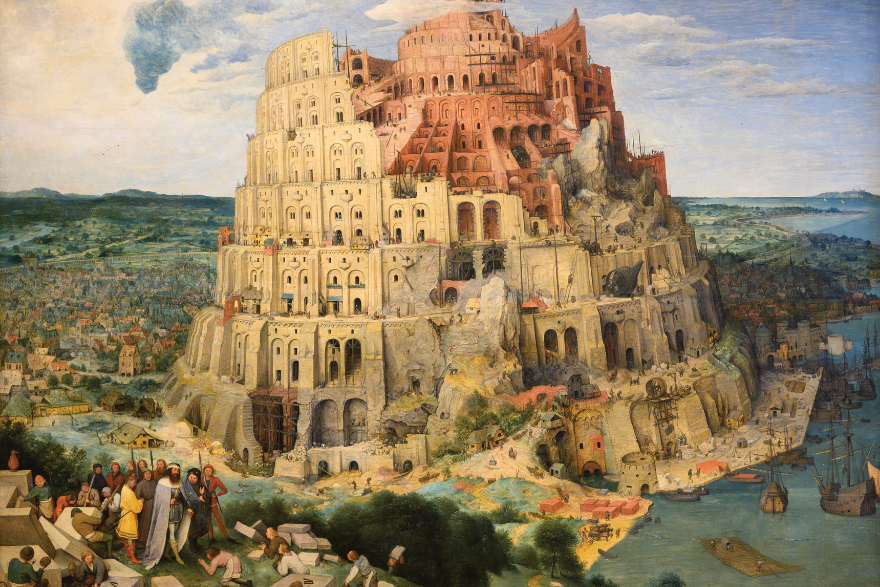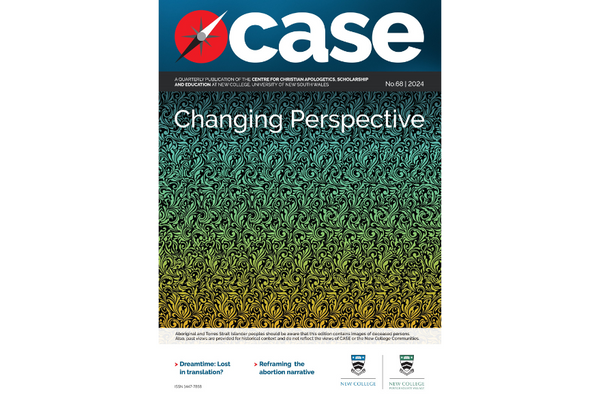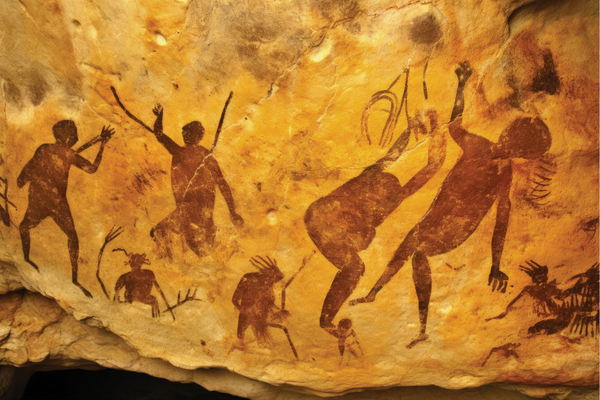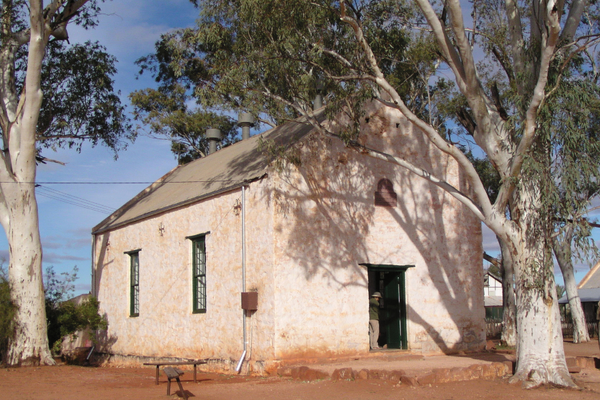Ethnic diversity: Blessing or curse?

In the last decade, ethnic diversity has moved from the progressive fringes to the centre of mainstream popular culture. It has become an unproblematic and unquestionable good. Television shows and movies now feature diverse multi-ethnic casts as a matter of course. Everyone gets on (or if they don’t, it isn’t for reasons of ethnicity). The main protagonist may still be white, but it’s likely their significant other isn’t. This trend is reflected in computer game characters, advertising billboards, and even emojis. Ethnicity is merely skin deep. Nobody doubts this is a good thing.
The people in the biblical story of Babel all speak the same language. They are working together to build themselves a city featuring a great tower (Genesis 11:1-9). With this impressive achievement, they plan to settle together in one place and make a name for themselves. But there’s a hitch. Yahweh (as God is named in the account) appears on the scene and undercuts their plans by confusing their language. They are forced to abandon their project and instead of living together, scatter across the face of the earth.
Linguistic—and, by extension, cultural and ethnic—diversity is portrayed here as a punishment; an evil at the root of social breakdown, misunderstanding, and disunity. Does this mean our world’s celebration of ethnic diversity is misguided? Is it, in fact, a curse? A punishment for human pride? Should Bible-believers be looking forward to the restoration of some kind of monocultural norm when Jesus returns? And if so, which one?
While often (and rightly) presented as a tale of humbled hubris, it’s worth noting that the Babel building project is not just an impressive tower, but a city where everyone can live together. The story is at least as focused on establishing a place to live as it is on establishing a reputation— arguably more so—and God has already had something to say about this.
Having finished his creation work in Genesis 1, God commands the first humans to ‘be fruitful and multiply, and fill the earth’ (v28). This command is re-issued to Noah’s family, the ‘first humans’ after the post-flood ‘reset’ (Genesis 9:1). The following chapter tells of this happening, as the languages, territories and nations of Noah’s descendants are listed.
The Babel story, appearing immediately after this, is jarring. ‘Filling the earth’ has evidently hit some bumps. Instead of spreading out as commanded, the people in this account want to stay together, and stay put. There are two reasons, not one, given for their building project: to make a name for themselves, certainly; but also because ‘otherwise we will be scattered over the face of the whole earth’ (11:4). God may want them to spread out and fill the earth, but they have other ideas.
Seen in this light, Yahweh’s response makes a lot of sense. By confusing their language and in turn undermining their unity, God not only undercuts their pretensions with embarrassing ease, but achieves his purpose of ‘filling the earth’ when faced with a people who would thwart him.
It is not the case, then, that linguistic (and down the track, ethnic) diversity must be considered evil or a curse in and of themselves. Rather, they are a means to an end. It is in one respect a punishment—the plans of the people of Babel are well and truly trounced but on a broader canvas, this diversity is the vehicle by which God achieves his plans to see the whole earth inhabited in the face of human recalcitrance.
Does this reading hold up when we consider the rest of the Bible? Or is it a ‘wishful thinking’ reading of the Babel story, one that fits better with our current sensibilities about the unquestionable goodness of ethnic diversity?
One concern is that scattering is often punitive in the Bible, while gathering is associated with salvation and blessing, especially in the context of the exile and return.[1] But to restrict the concepts to this context is too simplistic—a failure to understand that God requires different things of his people at different times. Gathering may be for a pragmatic purpose, with no special reference to salvation. It may even be for the purpose of judgement (Matthew 25:32). And sometimes scattering is what God desires: the disciples and early church missionaries are sent out to take the gospel to Jerusalem, Judea, then Samaria, and the ends of the earth (Acts 1:8). The context of Babel is closer to that of Genesis 1 than the exiles. The world stage is still being ‘filled’ as the setting for God’s cosmic plan of salvation. Scattering is in line with God’s purposes at this point. Bible scholars have noted that the table of nations in Genesis 10, which concludes with ‘the nations spread[ing] out over the earth after the flood’ (v32), actually follows chronologically from Babel. But post-flood dispersion has been placed before the rebellion of Babel in the Genesis text to highlight how that act of scattering fulfils God’s purposes of fruitfully increasing and filling the earth.[2]
Furthermore, in the New Testament, the fact of ethnic diversity is not presented as an evil but a part of God’s good plan which includes the salvation of people from all backgrounds. Thus Paul, preaching to a multicultural audience in Athens, says:
From one man he made every nation of men, that they should inhabit the whole earth; and he determined the times set for them and the exact places where they should live. God did this so that men would seek him and perhaps reach out for him and find him, though he is not far from each one of us. (Acts 17:26-27)
However, the New Testament authors are not blind to the power of ethnic diversity to divide sinful people, just as it did at Babel. Indeed, one of the most prominent themes of the New Testament writings is how the gospel heals such divisions, starting with the spectacular reversal of Babel at Pentecost, where linguistically diverse Jews understand the (Greek?) speech of the Twelve:
Now there were staying in Jerusalem God-fearing Jews from every nation under heaven... Utterly amazed, they asked: ‘Are not all these men who are speaking Galileans? Then how is it that each of us hears them in his own native language? ... [W]e hear them declaring the wonders of God in our own tongues!’ (Acts 2:5, 7-11)
In the Babel account, a monolingual people seek praise for their own works; at Pentecost, a multilingual audience hear God praised for his wondrous works.
As the reach of the gospel progresses through the book of Acts, there is great joy among the Samaritans—historically, bitter enemies of the Jews—when they receive the gospel from Jewish lips (Acts 8:4-8). Soon after, in one of the most significant moments in history, the apostle Peter is led by God to Cornelius and the recognition that God’s salvation is now open to Jew and Gentile alike (Acts 10). Much of the subsequent New Testament addresses the implications of this, explaining how the gulf between Jews and the nations is overcome in Christ, and exhorting early believers to love, wisdom and humility as they make every effort to live out the unity Christ won (e.g. Ephesians 4). The spread of Christianity throughout the world over the ensuing millennia bears tangible witness to this. And in John’s heavenly vision of the ethnically diverse redeemed multitude we see the ultimate affirmation of God’s acceptance and delight, with people, ‘from every nation, tribe, people and language, standing before the throne and before the Lamb’ united in praising their God and Saviour (Revelation 7:9ff).
In embracing ethnic diversity, popular culture has embraced an ideal that Christianity wholeheartedly affirms. But by glossing over genuine differences between people of different backgrounds, our screens and billboards can present the vision as unrealistically easy to attain. The great blessing of united diversity in the Christian church does not come cheaply or easily, but through Jesus’ sacrifice and the ongoing work of the Spirit in the hearts of his people.
Dr Dani Scarratt has a background in philosophy and is co-editor of Case Quarterly.
ENDNOTES
[1] E.g. the Assyrian and Babylonian exiles, and the restoration of Jerusalem (Nehemiah 1:9); the gathering of the nations to see God’s glory (Isaiah 66:18ff); and the gathering of the elect (Mark 13:27).
[2] Tremper Longman III, Genesis, Story of God Bible Commentary (Zondervan, 2016), pp141-155; G. J. Wenham, Genesis 1-15, Word Biblical Commentary (Thomas Nelson, 1987), pp242-246.
Leave a comment
Comments will be approved before showing up.



